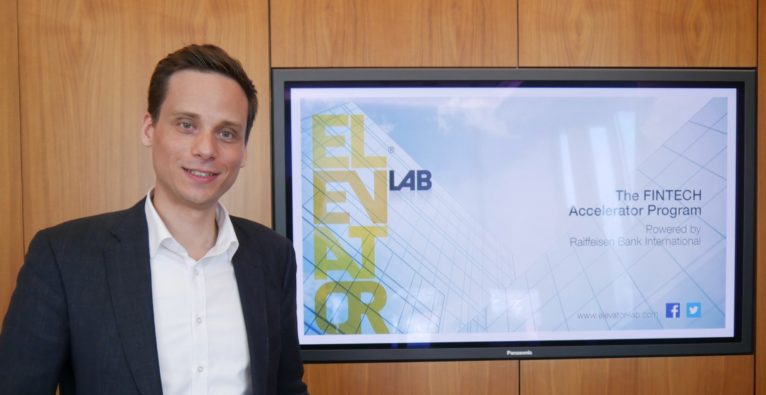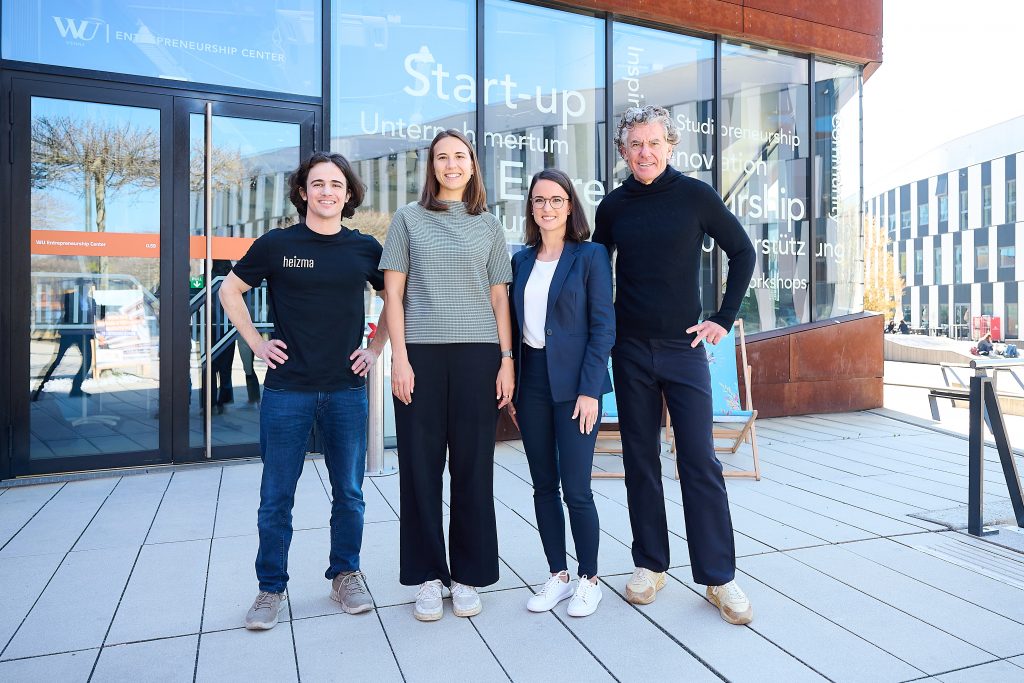✨ AI Kontextualisierung
„We are looking for startups that can create value together with RBI. We want to test their solutions, develop them further and apply them in our markets,“ says Max Schausberger. He is Program Lead at RBI Elevator Lab, the FinTech Accelerator of Raiffeisen Bank International. The Elevator Lab runs as a „Virtual Program“ for most of the time. The startups don’t have to be constantly present throughout the duration of 4 months. „Once a month we have three intense days here in Vienna,“ explains Mister Schausberger. Then the startups will work directly with the relevant RBI business units on joint pilot projects. „They have the chance to demonstrate that cooperation is worthwhile“. In addition external experts from a wide range of fields will provide mentoring sessions to the startups.
„Looking beyond the boundaries of our industry“
The applicant startups do not necessarily have to be FinTechs. „Of course, this is the area closest to banks. It is becoming more relevant for us to look beyond the boundaries of our industry though. So, I can only encourage any startup that sees a chance for a beneficial cooperation to apply to the RBI Elevator Lab“, says the Program Lead. Thereby he emphasizes the potential in the large market of RBI. The Austrian bank has subsidiary banks throughout the entire CEE region – eight of which have their own regional challenges as part of the Elevator Lab program. The regional winners will receive a „wildcard“ for the group-wide program. „The growth forecasts for these markets are well above the European average. This is a huge opportunity for our cooperation projects with the startups,“ explains Schausberger.
Video Interview: Max Schausberger about the second batch of RBI Elevator Lab
Successful „Learning Journey“
Last year, more than 300 startups from over 50 countries had applied for the Elevator Lab. Five startups eventually joined the accelerator and are now working on the implementation of their cooperation projects. Despite the great success, there were a lot of lessons learned for RBI throughout the first round, which lead to some changes, says Schausberger. „As part of this learning journey we have adapted our internal processes to startup cooperation. It’s a new kind of partnership we did not have before.“
„The banking industry changes every month“
For instance, there are some evident changes in the categories for which startups can apply. „The banking industry changes almost every month,“ says the Program Lead. The suggestions for the new search fields had come directly from the individual business units. „Our close interaction with the departments is absolutely essential to the program – from the definition of the challenges via the selection of the startups to the implementation of the pilot projects.“ One of the novelties in the second call is the explicit search for startups in the field of distributed ledger technologies, such as the blockchain. „The technology is still in a very early phase. But there are already many pilot projects throughout the industry and we are now ready to work on the topic in a structured way,“ says Schausberger. Within the past few months, RBI became the first Austrian bank to join the R3 Blockchain Consortium and the international Blockchain Research Institute. „We are nevertheless convinced that there are startups out there that bring in additional beneficial concepts they can test together with us.“
Six categories at the RBI Elevator Lab
Six search fields have been defined for the second round of the RBI Elevator Lab. The field „Open Banking“ has also been added this year, in line with the implementation of the PSD2 regulation. These are the six categories:
- Advanced Analytics, including Artificial Intelligence, predictive analytics, client and trading data analytics, client interaction analytics as well as augmented credit scoring and SME lending.
- Corporate Banking, including blockchain-based trade finance solutions, corporate prizing solutions, eDocument and optical character recognition as well as robotic FX trading advice.
- Investing & TradingTech, including blockchain-based investment banking solutions, smart contract certificates, automated document generation and hybrid or digital advice.
- New Branch Experience, including automated branch digitization, augmented or virtual reality, PoS solutions, remote advice and voice banking.
- Open Banking, including third party provider products and services, fund brokerage platforms and corporate multibank data aggregation.
- RegTech, including cyber security, blockchain-based AML, KYC, customer authentication and digital ID solutions, data protection and management as well as text mining.
Startups can apply until June 24th 2018. After a pre-selection of the semi-finalists, there will be Skype pitches from September 5th to 7th to determine the finalists.
⇒ Official page with application link
Video Wrap-Up







